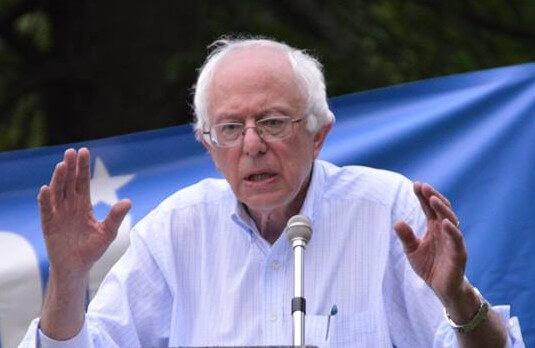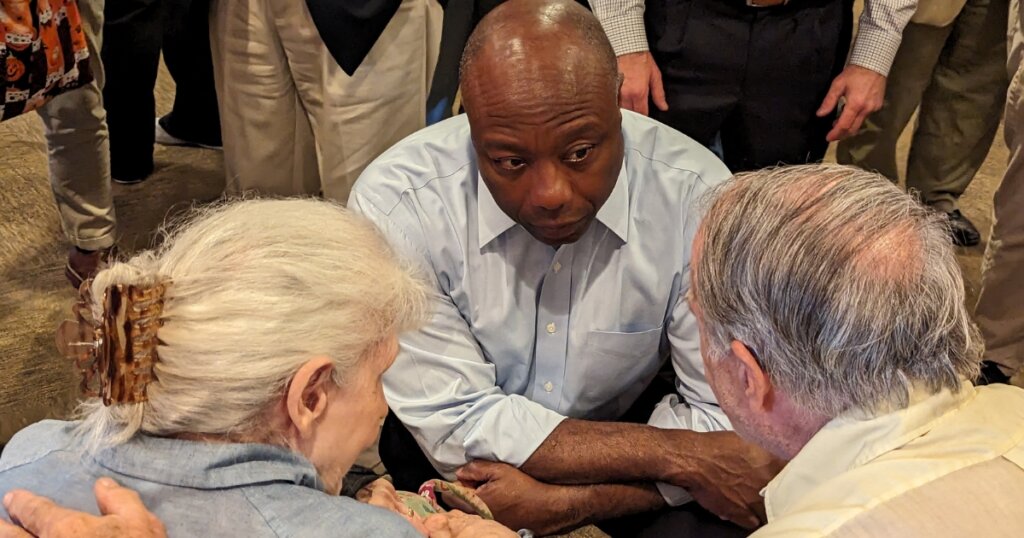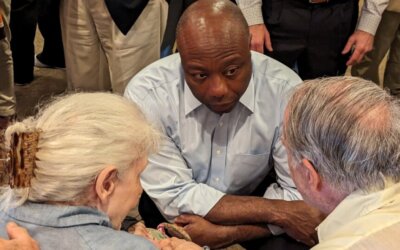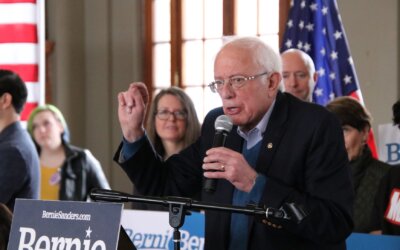
As caucus night draws near and the polls tighten, the Hillary Clinton campaign is putting increasing pressure on Bernie Sanders to release a detailed plan on his Medicare-for-all proposal. Namely: how is he going to pay for it?
The newest battle began after Sanders himself told CNN on Tuesday night that he would release his full tax plan before the Iowa Caucus. The next day, however, his national campaign manager Jeff Weaver backed off of that commitment. Sanders’ Iowa state director, Robert Becker, told the Des Moines Register that “Bernie Sanders will put forth details for universal coverage when he is ready and not because Hillary Clinton suddenly realized she is losing.”
All that didn’t sit well with team Clinton, which quickly called the backtracking on a plan “alarming,” and suggested Sanders was withholding information so to make caucus-goers think his Medicare plan could be implemented with little to no burden on most families. It’s likely also frustrating to Clinton backers who see a double-standard at play. If Clinton, seen by many critics as too calculating in her politics, decided to not release important details of a plan that could have negative effects before an important primary vote, she would be pilloried in the media non-stop for it.
The Sanders campaign shot back that Clinton committed a “flip-flop” on healthcare, even accusing her of using “Karl Rove tactics.” However, they weren’t hitting Clinton on a policy change, instead they were pointing to a statement she made in 2008 that Democrats shouldn’t criticize each other’s healthcare plans. But Clinton was largely criticizing Sanders’ lack of a plan in this instance.
There are two criticisms here coming from the Clinton campaign when it comes to Sanders’ Medicare plan. One is on the idea of Medicare-for-all itself, which Clinton and allies are arguing would either 1) be impracticable to implement without a large new tax on middle class families or 2) would dismantle much of Obamacare, CHIP and Medicare as it currently is. That policy argument has been met with push-back from many progressives who feel Clinton is attacking the idea of singer-payer, which is still very popular in many circles.
But the broader implication in this line of critique from Clinton is that Sanders promises a lot in his speeches, but would have extreme difficulty getting them actually enacted once in office. And that Sanders hasn’t adequately explained how much his “political revolution” would be realistically implemented.
For those who have covered Sanders extensively on the campaign trail, one can see some truth to this. Early on in the campaign there was a very notable difference between Sanders and the Clinton and O’Malley campaigns when it came to the number of “white papers” put out. O’Malley made a specific point to be the first Democrat to release detailed policy papers on a wide array of progressive priorities, including some on lesser-covered topics like addiction treatment and childhood hunger.
Clinton has made specific policy proposals a key part of her candidacy, often rolling out a new detailed plan every other week, and then hosting a event on the topic in Iowa or New Hampshire. Those have included extremely in-depth proposals on less-talked about issues like Alzheimer’s research, Autism assistance and campus sexual assault.
Sanders, on the other hand, has been noticeably slower to develop and release more concrete plans on a number of issues. This was particularly apparent during the summer and early fall months as his campaign rocketed to fame, and his staffing infrastructure took some time to keep up. In June Sanders said he would unveil soon a plan for childcare. By October he said he hadn’t “finished the proposal yet,” and his website right now still says they’re “working on a plan” for quality childcare and pre-K education.
On his tax plan that’s receiving new focus now, Sanders said way back in July that he’d come out with it in “two or three weeks.” In an interview in New Hampshire last week, Sanders said he’d have more information on the individual tax rate “very shortly.”
Sanders has, however, still put out a lot of detailed plans into the public sphere, including his plan to pay for many (but not all – Medicare) of his policies. And his issue page on his website is considerably more fleshed out than it used to be. And on certain issues Sanders has gone after specific Clinton plans he disagrees with. Sanders has recently pressured Clinton over her Paid Family and Medical Leave proposal, a key component of Clinton’s policy priorities. Sanders proposes a $1.61 payroll tax and criticizes Clinton’s plan to pay for it solely from a tax on the wealthy as unrealistic.
But there’s also stylistic differences with Sanders as he campaigns that could add concern on this front. In Q&A on the campaign trail, Sanders is famously brief and blunt in his answers. Candidates like Clinton, Christie and Bush can go at long length in their answers to policy questions from the audience, recounting past work on the issues, in-depth policy solutions or personal stories from voters they’ve heard during the campaign on the issue. Sanders, on the other hand, gets right to the point, rarely giving answers more than one or two minutes in length.
College tuition too high? Make public colleges and universities tuition-free.
Inner cities struggling? Invest $1 trillion.
To many, Sanders’ succinct solutions are a sign of authenticity, that he’s not willing to hem and haw over the interests involved, as doing so is part of the “politics-as-usual” where politicians try to play to both sides. To others it could be a sign that he sees the fight ahead if he’s elected President as too simplistic, that his “political revolution” will sweep aside many Congressional roadblocks and that he’s not realistic in how he’ll get his priorities accomplished.
It all sets up an interesting, contradictory-sounding dynamic with Sanders. Many of his supporters profess their allegiance to the Vermont Senator because they like how much he talks about the issues. They see him eschewing the typical campaign rhetoric of talking up your personal biography and making appeals to emotions. And much of that is certainly true, as Sanders’ speeches focus heavily on details and statistics. But the big question for caucus-goers is whether Sanders, who spends plenty of time talking about the problems America faces, is also detailing enough about his proposed solutions.
by Pat Rynard
Posted 1/14/16

Original, heels or boots: Pritzker says leading Republicans are all MAGA
Illinois Gov. JB Pritzker said all three leading candidates in the Iowa GOP caucus—Donald Trump, Nikki Haley, and Ron DeSantis—represent the same...

Trump tells supporters it is worth dying to caucus for him
Former President Donald Trump continues to encourage his massive base to turn out in droves for him during Monday’s Republican caucus and told an...

Climate change protesters disrupt Ron DeSantis event
Climate protesters disrupted a Gov. Ron DeSantis campaign event in Ames on Thursday night. Three protesters were escorted out of the room at...

Evangelical leaders predict huge caucus turnout, downplay endorsements
Iowa caucus candidates have racked up big-name endorsements—including a notable last-minute flip flop—but one evangelical leader said none of that...

We went to Vivek Ramaswamy’s ‘Vektoberfest.’ Here’s what we saw
As I sat on a park bench eating a bacon-grilled cheese sandwich, drinking an Exile Ruthie straight from the tap, and chit-chatting with a few folks,...

Tim Scott says kids need more exposure to conservatism
While many Republicans across the country have spent the last few years arguing that public schools are being used to indoctrinate kids into leftist...





